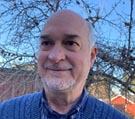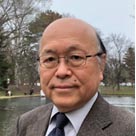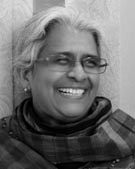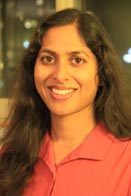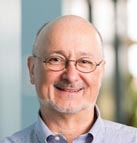 |
ISCApad #288 |
| Friday, June 10, 2022 by Chris Wellekens |
2 ISCA News
| 2-1 | Message from ISCA president Prof. Sebastian Möller Dear friends of ISCA,
Interspeech 2022 is casting its shadows before us: In the last days, the Technical Programme Committee Chairs, backed up a number of Area Chairs, General Chairs and ISCA board members, have taken final decisions on a record number of submitted papers. Whereas the setting was hybrid with virtual and in-presence participants, the outcome is the usual wide choice of high-quality papers, addressing the diversity of topics you would expect from your favourite conference. Smoothly managing this huge task was only possible with a very dedicated TPC, led by highly motivated TPC Chairs, and supported by Area Chairs and reviewers that spent lots of extra hours to come to fair decisions. The work is not fully done, but you can expect to receive acceptance/rejection emails in the given time frame. Please join me in thanking Kyogu Lee, Okim Kang, Lori Lamel, Mark Hasegawa-Johnson and Karen Livescu for their excellent handling as the Technical Program Co-Chairs!
The selected papers will result in an interesting program, which – compared to the Brno edition of Interspeech 2021 – will follow a schedule which is closer to the one of an in-presence conference. One reason is that we expect a higher percentage of on-site participants, another is the distribution of time zones which make Korea forerunner over Europe and the Americas. Still, virtual participation will be possible through fully-virtual Life Poster Q&A sessions scheduled for the Korean evening hours, as well as streamed keynotes and ceremonies. Also, the ISCA General Assembly will be hybrid, so that both on-site and virtual Interspeech attendees can participate. The conference organizers, led by Hanseok Ko, with assistance from Co-Chair John Hansen, will come with updated information about the program as soon as this is finished.
On the association side, we identified an individual who will coordinate Interspeech organization in the long run, and be the second employee of ISCA. In addition, we plan to exchange some of our software tools which have become slightly outdated. We are happy to discuss these and further news from the board at the General Assembly during Interspeech.
With my usual thanks to Chris Wellekens for his excellent job in compiling this ISCApad, I wish you a geed read.
Sebastian Möller ISCA President
| ||
| 2-2 | 2022 ISCA FELLOWS Announced
Over the past few months, ISCA has been seeking nominations and endorsements for this year’s ISCA Fellowship awards. The ISCA Fellows Selection Committee maintains a rigorous process of evaluating all nominations (more details are found on the ISCA webpage at: https://www.isca-speech.org/iscaweb/index.php/honors/fellows). After extensive evaluations and reviews, the following six distinguished researchers will be elevated to the status of ISCA Fellow for 2022. Their citations as well as affiliations are highlighted below. Please join me in congratulating these well deserving colleagues for their research contributions to the field of speech communication and technology! All will be recognized at INTERSPEECH 2022 in Incheon, Korea, this fall.
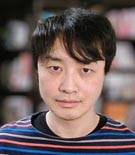
As always, we welcome feedback and input from the ISCA community – if you have suggestions for our society or want to be involved, please let us know!
Phil Green (ISCA Fellows Board Member) Sebastian Möller (ISCA President)
| ||
| 2-3 | ELRA/ISCA Special Interest Group: Under-resourced Languages (SIGUL) ELRA/ISCA Special Interest Group: Under-resourced Languages (SIGUL) Created in April 2017, SIGUL is a joint Special Interest Group of the European Language Resources Association (ELRA) and of the International Speech Communication Association (ISCA). This year, SIGUL enters the fifth year and now has more than 300 members. The SIGUL Board is elected every two years, and last year SIGUL had a new Board officer: Chair and ISCA liaison representative: Sakriani Sakti (JAIST, Japan) Co-chair and ELRA liaison representative: Claudia Soria (CNR-ILC, Italy) Secretary: Maite Melero (Barcelona Supercomputing Center, Spain)
SIGUL has organized various events, including the Spoken Language Technologies for Under-resourced languages (SLTU) Workshop Series, which has been organized since 2008, and Collaboration and Computing for Under-Resourced Languages (CCURL), which has been organized as LREC Workshop since 2014. From this year, the tradition of CCURL-SLTU will be united into one SIGUL Workshop and planned to be held as a Satellite Workshop of LREC or INTERSPEECH. The 1st Annual Meeting of the ELRA/ISCA Special Interest Group on Under-Resourced Languages (SIGUL 2022) will be held as Satellite Workshop of LREC 2022, Marseille (FR), 24-25 June 2022. The SIGUL venue will provide a forum for the presentation of cutting-edge research in NLP/SLP for under-resourced languages to both academic and industry researchers, and also offer a venue where researchers in different disciplines and from varied backgrounds can fruitfully explore new areas of intellectual and practical development while honoring their common interest of sustaining less-resourced languages. Topics include but are not limited to:
We also invite position papers on methodological, ethical, or institutional issues. Important Dates:
More details can be found on the workshop web page: https://sigul-2022.ilc.cnr.it/
SIGUL Board Sakriani Sakti Claudia Soria Maite Melero
| ||
| 2-4 | ISCA Language SIGS ISCA supports speech communication research activities in various languages. The individual languages have equal interest, but they may involve have different technical or scientific problems. For example, some languages are tonal, while others are not; Some languages have only one writing system, while others have several. In the ISCA community, we have 6 language Special Interest Groups (SIGs) for Chinese, French, Italian, Iberian, Indian, and Russian. Each SIG is organised by researchers who speak the language of interest as L1 and others who have a technical or scientific interest in the language. Each SIG sponsors domestic and international research activities, and representative members of the SIGs attend a Lang SIG meeting every year during the INTERSPEECH conference. In this meeting, recent activities of each SIG are reported, and new ideas are exchanged. We also review what ISCA can do for the SIGs and what the SIGs can do for ISCA. Each SIG has its own web page, and you can visit the pages here. Prof. Nobuaki MINEMATSU The University of Tokyo Japan
| ||
| 2-5 | ISCA Special Interest Group (SIG) 'Spoken Language Translation'
ISCA SIG “Spoken Language Translation” Aims. The SIG SLT covers all aspects of spoken language translation — simultaneous translation and interpretation, speech dubbing, speech-to-text translation, speech-to-speech translation, cross-lingual communication including paralinguistic, emotional or multimodal information, and related areas SIG SLT will (a) provide members of ISCA with a special interest in spoken language translation and its related areas with a means of exchanging news of recent research developments and other matters of interest in spoken language translation; (b) organize challenges and evaluation campaigns; (c) sponsor and organize the International Conference on Spoken Language Translation (IWSLT), meetings, satellites, and tutorial workshops in spoken language translation, operating within the framework of ISCA's by-laws for SIGs; and (d) make available open-source code and data resources, best practices and tools, and evaluation metrics relevant to spoken language translation.
Motivation. Recent interest in speech translation and simultaneous translation by machine has been growing explosively, due to continued performance advances and a growing international need for simultaneous translation and interpretation, speech dubbing, speech-to-text translation, speech-to-speech translation, cross-lingual communication including paralinguistic, emotional or multimodal information, and related areas. The under-covered elements in the current research are, for instance, incremental simultaneous speech-to-speech translation, paralinguistic translation, speaking style translation across languages. The proposed SIG will be organized by the members who are interested in spoken language translation/interpretation from various related areas such as ASR, TTS, and MT. SIG SLT emerged from over two decades of organizing the International Conference on Spoken Language Translation (IWSLT) and its predecessor C-Star, scaling operations in response to significant growth in the field. The organizers of IWSLT and partners believe it is now time to join with ISCA by creating an ISCA SIG. IWSLT has a 15-year track record of profitability; it runs the premier benchmarking campaign on spoken language translation annually accompanied by an international scientific conference to present and discuss results.
| ||
| 2-6 | ISCA hires a Conference coordinator The International Speech Communication (ISCA) [www.isca-speech.org) seeks application for a :
Conference Coordinator (f/m/d)
For a limited-term contract with 18h/week, with the perspective of extension towards an unlimited-term contract.
The International Speech Communication Association (ISCA) is a scientific non-profit organization according to the French law 1901. The purpose of the association is to promote, in an international world-wide context, activities and exchanges in all fields related to speech communication science and technology. The association is aimed at all persons and institutions interested in fundamental research and technological development that aims at describing, explaining and reproducing the various aspects of human communication by speech, e.g. phonetics, linguistics, computer speech recognition and synthesis, speech compression, speaker recognition, aids to medical diagnosis of voice pathologies.
One of the core activities of ISCA is to ensure the continuous organization of its flagship conference, Interspeech. The conference is organized each year in a different country by a different team; it typically attracts 1500 or more participants from all over the world. The role of this newly-created position of conference coordinator is to ensure a smooth organization of the conference over the years, according to well-established standards, and taking into account the aims ISCA has with the conference.
The role requires – amongst others – to take over the lead for the following activities:
Required competences:
We are looking for a self-motivated person who is enthusiastic about the organization of international scientific events, and has excellent organizational and communication skills (mostly in English). The person does not need to have a scientific background in speech communication and technology, but should be able to understand the scientific background, as well as the aims ISCA has with the organization of Interspeech conferences. A proven expertise in the organization of large-scale events is a must, and of scientific events is a plus.
The job can be carried out remotely from any location. A flexible allocation of time over the year is required, depending on the status of preparations (the conference is typically organized in September, and there is an expected increase in activity from March to September). The willingness to physically attend preparatory meetings and the conference is required.
Deadline : 15 March 2022.
| ||
| 2-7 | ISCA needs your help! ISCA needs your help!
For the smooth running of our organization and our flagship conference Interspeech, we’ve been relying on lots of different electronic tools. Unfortunately, many of these tools are outdated and/or did not scale up with the growth of our community. Moreover, our website and communication channels get do with a make-over.
In order to improve the services for the benefit of the entire community, we are looking for volunteers who would like to help with the task of planning a new IT infrastructure for ISCA. This infrastructure might include the review system, the reviewer database, membership administration, web site, communication tools, as well as other administrative IT infrastructures still to be defined. Requirements should be collected from members of the ISCA board, past and present Interspeech organisers, and our community, and they should be mapped to the possibilities ISCA has, considering also personal issues such as frequently-changing board members, absence of continuous IT support, etc.
Would you like to help in the planning of the new IT infrastructure? Please send an email to president@isca-speech.org indicating why you are interested, and a little bit of your personal background relevant to this activity.
Thanks! Odette & Sebastian
| ||
| 2-8 | ISCA-PEDRAC: a new service of ISCA. ISCA-PECRAC (Postdoc & Early Career Researcher Advisory Committee) is pleased to invite postdoc & early career researchers to participate in the 1st Early Career Researcher Annual Gathering @ Interspeech 2021 (online this year).
The Early Career Researcher Annual Gathering aims to provide an opportunity for postdoc & early career researchers to meet and communicate at INTERSPEECH. In the framework of ISCA-PECRAC, we would like:
1st Early Career Researcher Annual Gathering @ Interspeech 2021 Time : August 30 at 18:00 - Brno time (preliminary slot) Location : Online Program :
Contacts: Yaru Wu (yaru.wu@sorbonne-nouvelle.fr) Berrak Sisman (berrak_sisman@sutd.edu.sg)
| ||
| 2-9 | ISCA social networks We encourage all members tokeep contact with ISCA via our social nets. Also you will bde kept informed about all events on our website. This is particularly important in this time where due to the coronavirus, many modifications may be brought to the conference.
ISCA Facebook : https://www.facebook.com/iscaspeech/ ISCA Twitter : https://twitter.com/ISCAFOX ISCA SAC Student Facebook : https://www.facebook.com/groups/98794207409/ website : www.isca-speech.org
| ||
| 2-10 | Women in Speech Research
| ||
| 2-11 | Code-of-Conduct for Conference and Workshop Attendees Code-of-Conduct for Conference and Workshop Attendees
| ||
| 2-12 | Code-of-Ethics for Authors (updated) Code of Ethics for Authors
| ||
| 2-13 | Reminder ISCA International virtual seminars REMINDER: ISCA INTERNATIONAL VIRTUAL SEMINARS Now's the time of year to start organising your seminar programme for the coming academic year. Don't forget that ISCA has recruited 17 leading researchers in Speech Communication prepared to give seminars on line. For instance, Gustav Henter of KTH Stockholm comments: As the person responsible for seminars at the Division of Speech, Music and Hearing (TMH) at KTH Royal Institute of Technology, in Stockholm, Sweden, I would like to thank you for the excellent initiative to set up ISCA international virtual seminars during the pandemic. Thus far our division has made use of this scheme on three occasions: The idea to invite distinguished speakers virtually has been widely appreciated by the department. It is likely that we may schedule further virtual seminar from your pool for our autumn semester seminars as well. For details, follow the entry Online Seminars in the left menu on the ISCA home page, https://www.isca-speech.org/iscaweb
-- ************************ Professor Phil Green SpandH Computer Science University of Sheffield ************************
| ||
| 2-14 | Call for reviewers Interspeech 2022 Nominations to be a reviewer for Interspeech 2022 are now open. If you would like to review for Interspeech, or if you have a colleague or former student who would be qualified, please nominate yourself, your colleague, or your former student at https://isca-speech.org/iscareviewers/reviewer.php.
Interspeech reviewers must have a Ph.D. in an area of research related to speech science and/or speech technology. Nominations must include a link to an online CV; nominations will be reviewed by the ISCA Technical Committee.
| ||
| 2-15 | Videos at Interspeech 2021 The video recordings of Interspeech 2021 were processed and are currently being uploaded online. You can find all the videos at
| ||
| 2-16 | Prix AFCP attribué à Mathieu Balaguer. Après étude des candidatures par le Conseil d’administration de l’AFCP, le prix de thèse 2021 a été attribué à Les prix de thèse 2020 et 2021 seront remis aux lauréats lors des JEP 2022 qui se déroulent à Noirmoutier, 13-17 juin (attention: inscription au tarif préférentiel avant le 2 mai).
Martine Adda-Decker,
|

